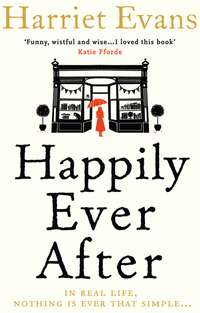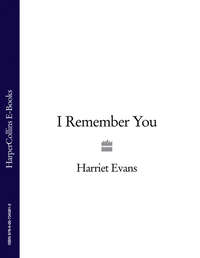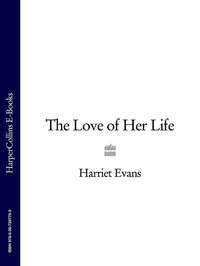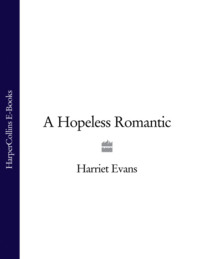
Полная версия
I Remember You
The fact that his own daughter had been forced, because of death duties, to sell Langford Hall, the Victorian Gothic manor house at the edge of the town, was something that still, nearly forty years on, gave her pause. Langford Hall was now Langford College, a private institution that at least taught respectable things, like History of Art, French classes, the Classics, of course, and so on. But no matter how respectable it was, she knew Father wouldn’t have liked it.
Leonora Mortmain took a deep breath. Thinking about her father brought back painful memories. She had been feeling older lately, and these days she kept thinking about the past. More and more. She had a final plan underfoot—one that she knew was right, but which sometimes made even her quail at the thought of what she was doing…
Something caught her eye, and Leonora sat back in her chair. A tall, darkish blond boy—well, she supposed he was a man now. He appeared outside the pub and started chatting to Mick Hopkins. He clapped the older man on the back as they laughed about something, his wide, easy smile infectious.
Leonora knew them both. Mick Hopkins had been at the Feathers for more than thirty years now. They said he was a good landlord—Leonora had never been inside the pub, though she had lived opposite it for forty years. She supposed he was an inoffensive man in his way, compared to some of the people she was forced to watch on a regular basis, but she didn’t care for him. He was responsible for so much of the bad behaviour she saw outside her window, and whenever she complained he brushed her aside, politely, but she could tell he was laughing at her…She hated that, hated it.
Her eyes fell, almost greedily, on the man he was with. It was Adam Smith, Philippa Smith’s son. Leonora watched him carefully, knowing she was spying, but just for once letting her curiosity get the better of her.
When he was eleven, Adam had won the top prize at Langford Primary, for outstanding achievement. Leonora had offered to pay his school fees. It was the right thing to do. He was an extremely intelligent boy, he had been offered a part scholarship, as a weekly boarder, to—School, and his mother couldn’t afford for him to take it up. Leonora had stepped in, enjoying the slightly surprised murmurs of approval that greeted the announcement that she was paying for his education. She would do it every year, she said, fund the brightest pupil from the school through to their graduation, as a memorial to her father.
But to Leonora’s immense displeasure, Adam had gone to the bad. His mother had died, suddenly, when he was almost eighteen, dropped dead in the street of a brain aneurysm. A terrible thing and a shock to everyone, but Adam had gone to pieces. He had failed, soon after his mother’s death, to get the results he needed for Cambridge, and he had gone on failing ever since. He didn’t seem to care about that fine mind of his after that; he would rather loll about on the street chatting and laughing like a common idiot, not like the gentleman he should be. She had had such high hopes for him, had seen it as her chance to create something out of nothing, and it had failed…Leonora Mortmain blinked, realizing she was staring rather too intently out of the window at the young man.
She rang the bell with fury, shaking her head querulously. Too tiresome to think about all that now.
‘Mrs Mortmain?’ Jean Forbes bustled into the room. ‘Are you all right, Mrs Mortmain?’ The ‘Mrs’ was a courtesy—no one quite knew why or where it had started, but no one dared call her ‘Miss’ now. Much less ‘Ms’, though some would have loved to have tried.
‘I am well,’ said Leonora, collecting herself once more. She looked out of the window, searching for composure. Her eye fell upon a girl in jeans and a light blue top, ambling slowly along the street towards where Adam Smith stood with Mick from the Feathers. ‘Tell me, who is that?’
The inhabitants of Langford believed Jean Forbes put up with a great deal. Leonora Mortmain didn’t pay well, and she was an extremely difficult woman, who almost went out of her way to be unpleasant. Poor Jean, people said. That awful, dried-up old crone—imagine having to live with her! Did you hear, she tripped Ron Thaxton up with her walking stick, because he was in her way? She told Jan Allingham that she believed charity should be in the home and nowhere else, when she came round collecting for Cancer Research. The list went on and on.
For her part, Jean knew they said it—on certain days, she couldn’t blame them for saying it. But luckily for Leonora, Jean’s nature was good and kind and, most importantly, patient. ‘You rang very loudly. I thought you were—’ she began.
‘What?’ snapped Leonora. ‘I asked you who that—’ She jabbed the window with a long finger, painted magenta and crowned with a thick gold and garnet ring. ‘—was.’
Jean looked now as if she were about to say something, but she thought better of it, and leaned out of the window. The girl and Adam had recognized each other, and were embracing, laughing heartily as they did so. He patted her on the back, lifting her up so her feet were off the ground as Mick went inside, leaving them chattering happily together. Jean screwed up her eyes.
‘Oh, my goodness,’ she said, after a moment. ‘Isn’t that Frank and Emily’s daughter?’
‘And whom might they be?’ asked Leonora Mortmain.
‘Tess,’ Jean said. ‘I’m sure that’s Tess Tennant. Ah! Bless her! Sweet girl. The doctor’s daughter. Dr Tennant? He came when you had that problem with your foot. You used to like her, remember, she went off to become a Classics teacher. She and Adam were such friends. Looks like she hasn’t seen him for a while.’ She clapped her hands together. ‘Of course! Didn’t Carolyn Tey tell me that she’s joining Langford College in a couple of weeks? She’s the new Classical Civilization tutor there.’
‘Is this true?’
Jean blinked. ‘Well, yes, of course it’s true. Do you remember, Derek what’s-his-name had to leave before Christmas, he got shingles? They’ve been desperate for someone ever since.’ She looked at her employer, realizing she was gabbling, and sighed. ‘Carolyn’s signed up for a course, Mrs Mortmain! They’re going on a trip to Rome in May!’ Jean sighed. ‘Ooh. I’d love to go to Rome.’
Rome. Rome, in May. In the plans that Leonora had had when she was young, Rome had figured large. And it would mean she could go back to the house, legitimately go back once more, as a student, not as a young girl living there. Just once more, before she died. Leonora pretended to ignore Jean, leaning back towards the window, watching Tess who was explaining something to Adam. He stood listening intently to her, hugging himself, his hands tucked under his armpits. Tess ran her hands through her black hair, and it stuck up a little at the back. Rome. Rome.
‘Hm,’ said Leonora. ‘Well, I don’t remember her.’ She wrinkled her brow, as if searching for a memory.
‘You do remember, Mrs Mortmain,’ Jean said. ‘She used to play with Adam—Adam Smith all the time. Best of friends when they was little. It’s nice to see her again,’ she said ruminatively. ‘Nice to have a young face move back to the town, isn’t it?’
‘Ye-es,’ said Leonora slowly, not really listening. Her gaze had slid from the girl to the poster she was now reading, stuck crudely onto the old blackened wood of the archway. ‘Jean—ah, what does that poster say?’ she asked.
‘“Stop the Out-of-Town Superstores,”’ Jean read slowly. ‘“Shame on the Mortmains! Save Langford!” Oh,’ she said, realizing what she’d just said. ‘Oh, Mrs Mortmain, I’m sure it doesn’t mean…’
Leonora stood up; leaning heavily on the windowsill as she did so. She was shaking. She peered forward, the better to see the poster:
STOP THE OUT-OF-TOWN SUPERSTORES
SHAME ON THE MORTMAINS!
SAVE LANGFORD!
SAVE THE WATER MEADOWS!!!!
If YOU want to stop Leonora Mortmain from ruining OUR town with these plans for 2 megamarkets, a homeware store and 4 other retail outlets, to be built on the historic Langford water meadows, which will make HER RICH and KILL THE TOWN AND OUR BEAUTIFUL WATER MEADOWS, come to the Feathers, March 15th, for a town meeting. Call Andrea Marsh, Ronald Thaxton or Jon Suggs for more information! Get involved!
‘Oh, dear,’ said Jean, as her employer sank back into the silk chair, breathing fast. ‘I didn’t want you to see it—’
‘Don’t be stupid,’ Leonora snapped. Her mind was racing, almost as fast as her heart. ‘It was bound to happen, sooner or later. And the sooner they realize it’s our land, to do with it what we wish, the better. The plans are already approved in principle.’ She looked around her lovely sitting room, and then out onto the street again, at the poster, as Tess and Adam walked away, still talking. Adam looked across, towards the house. Leonora shrank against the curtains. She did not want him to see her.
‘So,’ she said. ‘It’s started, then.’ She paused. ‘Well, everyone needs to understand. It’s for the best.’
Jean Forbes said nothing as Leonora Mortmain turned to the window again, and continued to stare out onto the street.
CHAPTER TWO
‘So when did the train get in?’
‘An hour or so ago. I dumped my stuff at the pub and you’re the first person I saw.’
‘You’re staying there?’
Tess said grimly, ‘I need to find somewhere to rent, fast. It’s expensive, the Feathers—what’s happened?’
‘I can’t believe you’re back,’ Adam said, smiling at his oldest friend as they walked down the High Street. He made to put his arm round her.
‘Ow!’
‘Oh sorry,’ he said, rubbing her shoulder where he had jabbed it.
‘It’s fine.’ Tess picked up her speed; she was small and he was tall and she remembered, then, that they didn’t walk well together: always out of step. There was an awkward pause.
‘It’s really you! Man.’ Adam shook his head, looking at her. ‘It’s been a long time, Tess. I can’t think of the last time I saw you.’
She looked up at him. ‘I know.’ Her eyes searched his face. ‘Your hair got darker,’ she said, eventually.
He tugged at it. ‘Oh. Probably not.’
‘You used to be so blond,’ she said. ‘Especially in summer.’
‘Not for years,’ he said. ‘That was when I was a boy.’
‘Remember your mum used to call you the Milky Bar Kid, and you’d get so cross?’ She smiled, but a look of pain shot across Adam’s face at the mention of Philippa’s name, and she regretted it. Was he still not able, after all this time, to talk about his mother?
‘I’d forgotten,’ he said, though she knew he was lying, he remembered everything. ‘You just haven’t seen me for a while, that’s all. You are a heartless girl.’
Tess shook her head firmly, glad to move the conversation on. ‘You never come to London, that’s the problem.’
‘Hey.’ He grimaced. ‘You never came home, that’s the problem.’
‘Rubbish,’ Tess said. She avoided looking at him, trying not to sound defensive, keeping her voice light. ‘Anyway, Mum and Dad don’t live here any more, so why should I?’
‘Typical,’ said Adam. ‘A brother. I’ve been like a brother to you all these years, and you just don’t care.’
‘A brother?’ Tess laughed, rolling her eyes, she couldn’t help it. ‘Right.’
Adam seemed not to hear her. He looked at his watch. ‘So—how’s Stephanie?’
‘She’s great. She and Mike just moved to Cheltenham—but you knew that.’
‘Sure,’ said Adam, stopping to let a tiny old lady clutching a green string bag pass on the crowded street. ‘She sent me a Christmas card. Morning, Miss Store! How are you?’
‘Good morning, Adam dear,’ came a bright voice back. ‘I’m very well, thank you. I have some lovely rhubarb, if you’d like some. Didn’t you say you were coming round later?’
‘Yes, please, that would be great.’ Adam smiled, and they walked on. Tess chuckled.
‘What’s so funny?’ Adam said. ‘She’s a very nice lady.’
‘OK, OK!’ Tess said. ‘Where are we going later?’
‘I’ll explain in a bit,’ Adam said. ‘I hope you’re pleased.’
Tess pulled her ponytail out and rubbed her scalp, letting her hair fall about her shoulders. She looked around her again, frowning. ‘Well, I’m back.’
She had to remind herself how, back in Balham before Christmas, dumped, unemployed and miserable, the job at Langford College had seemed, quite literally, like a miracle. Not only was it a job, which in these times was a rarity itself, especially since she was a Classics teacher and not someone providing a necessarily indispensable teaching service, but it was also a way out, a new start, a way to leave behind the misery she’d felt and start over again. But now she was here…It was eighteen months since she’d been back; even longer, she realized now, since she’d really taken stock of Langford, of what were to be her new surroundings. Like someone walking through their new house and wondering if they’ve made a terrible mistake, she now saw the town again, as if through fresh—and rather dismayed—eyes.
Take, for example, the high street. It was like walking through Toy Town. The shops looked smaller; the church of St Mary’s at the end was tiny. Even the side gate, the entrance to one of the medieval lanes that skirted around the edge of town, seemed minute to her, as if a child could climb over it. Compared to London, to her old street in Balham, which was three times as long as the high street, it was hilarious. She’d forgotten, when she first went to London, how huge everything seemed, even though she knew it already. How it took her a term of wandering around Bloomsbury to get used to it, the size of the squares, the vast classical columns of the university buildings, the height of the houses, even the size of the theatres. She was taken to the ballet by a boyfriend from university, and Covent Garden seemed as huge a football pitch.
And the shops! Everything here was either an antique shop or a gift shop or a tea shop, or else a crappy homestores place that only seemed to sell frozen Findus pancakes and ready-made Yorkshire puddings. She peered into the window of a shop called Jen’s Deli, noting with some relief that there was at least one shop that sold parmesan and prosciutto. She may have lived in Balham, but even Balham had a shop that sold Poilane bread.
‘Penny for them,’ said Adam’s voice, behind her.
‘What?’ said Tess, momentarily disconcerted. She glanced up, and saw his reflection in the window, watching her. She brushed her hair out of her face. I was just thinking how glad I am that at least there’s a half-decent shop here that sells fresh parmesan. She was ghastly. ‘Oh, well. Nothing!’ she said brightly. ‘So—tell me. How’s it going? How is—everything?’
For a while now, Tess hadn’t known the best way to ask what Adam was up to, but she knew it drove him mad, the pussyfooting. After Philippa died, people pussyfooted all the time, half-asking him what he’d do. ‘You’re—not going to Cambridge? Ah! What will you do here instead? A job at the pub? Sounds like a good one, Adam, keep you behind the bar instead of in front of it, eh! Ha! Ha!’
‘Ah, so you’re working in the museum now too? Well, no one better than Jane Austen! If that’s what you’re going to…So, how long do you think you’ll be—oh, you don’t know, well, of course, that’s absolutely right, isn’t it! Quite right.’
To Tess’s father Frank, who had asked Adam straight out a couple of months after his mother died, why he wasn’t going to Cambridge, why he wasn’t even going to defer for a year and then go, Adam simply replied, ‘Things have changed, I’m afraid. I’m not going.’
‘I think Philippa would have wanted you to go,’ Tess’s father had said. Tess had watched, terrified, her fingers in her mouth.
Adam had said, evenly, ‘I know she’d have understood why I’m not going. There are reasons why. She would understand, trust me. Thanks, though.’
‘What for?’ Dr Tennant had said, bewildered.
‘For asking directly in the first place,’ and Adam had said it so politely that Tess had looked at him, almost in despair, and then at her mother whose hand flew to her chest, as if clutching her heart in some sort of pain. He was heart-breaking, this young man, completely alone in the world, prepared to throw away his best chance at life. But what could they do? They couldn’t bind him and bundle him in the back of a van, then drive east and dump him outside the gates of his college. And there was no one else they could talk to, either. All Adam—or Frank or Emily—knew about Adam’s father, the Irish professor, was that he’d moved to America many years ago, and there were no details for him; Adam wasn’t even sure of his surname.
He was only just eighteen, and he was alone in the world. There wasn’t really anything the Tennants could do now, except watch out for him, help him as much as they could. Watch, as everyone’s favourite boy passed his twenties living in the small cottage where he had grown up with Philippa, never clearing out her possessions, and alternating jobs between the bar of the Feathers and the Jane Austen Centre, where he worked behind the front desk two and a half days a week. He never talked about his mother, or what might have been. Never.
Looking at Adam now, Tess knew she wasn’t going to get an answer out of him.
He said, ‘Things are the same as they’ve always been.’
‘Still working at the Feathers? I didn’t know the barman when I went in to drop my stuff.’
‘Yep,’ said Adam. ‘Suggs is doing a couple of nights a week there, actually.’
Suggs was Adam’s best friend and his housemate in the cottage.
‘How’s the Jane Austen Centre?’
‘Oh, you know,’ Adam said. ‘Pretty full-on. Tiring.’
‘Really?’
‘Yes, you know. We’ll have to rearrange Her Glove soon, and some people are talking about moving the furniture in the Writing Room. Phew.’ He saw her expression. ‘I’m joking, you idiot.’ He pushed her gently. ‘It’s dead, deader than a dodo. Especially this time of year. We get tourists, but it’s ten a day at best. Even I can cope with tearing off ten ticket stubs.’
Tess was embarrassed, and tried to cover her embarrassment. ‘Right. I see. Well, it sounds like you’re keeping yourself busy!’ He gave her a strange look. ‘Er, let’s take a look in here, shall we?’ she said, almost wildly, and pushed the door of the deli open before Adam could stop her.
‘No—er—Tess—’ he called after her as she went inside, but she ignored him.
‘Hi,’ said a friendly-looking person behind the counter, wiping her hands on a tea towel. ‘Can I get you anything?’
She was beaming in a welcoming way which made Tess, less than two hours off the train from London, instantly suspicious of her. ‘Just looking, thanks,’ Tess replied repressively and turned to the shelves.
‘They’ve got some good stuff in here,’ Adam said, in a low voice. He swivelled round, so they were both facing the shelves. ‘Nice pasta, and the vegetables are fresh. They get them from George Farm, it’s a good arrangement.’
‘I love cooking,’ Tess said. She sighed with pleasure.
‘How long are you staying at the pub for?’ Adam asked her.
‘Till I find somewhere,’ Tess said.
‘You should have stayed with me,’ Adam said. ‘It’s ridiculous, you paying to stay there.’
‘I didn’t—’ Tess began, then she stopped. ‘That’s so sweet of you.’ She patted his arm, touched and grateful for the presence of him, and shook her head.
‘That’s OK,’ Adam said, still in a low voice.
‘Why are you speaking so softly?’ Tess said. She turned back to the counter. ‘Perhaps I should get some—’
‘Adam?’ said the friendly girl eagerly, her pale face lighting up. ‘I thought it was you. Hi—hi there!’
‘Hi, Liz,’ said Adam neutrally. ‘How’ve you been.’
He said this not as a question, more from a need to say something. Tess watched this exchange with dawning understanding.
Liz wiped her hands on her tea towel again, beaming with pleasure. ‘It’s good to see you! I wondered where you’d been.’
‘Ah—ah.’ Adam took a step back, and Tess smiled wryly, looking at her feet. Just like the old days; nothing had changed. She knew what was going to happen next.
And it did. ‘This is Tess,’ Adam said, putting his arm around Tess and squeezing her shoulders. He kissed the top of her head. ‘Tess, this is Liz. She’s from London too.’
‘Actually, I’m from Nantwich,’ Liz said. ‘But I live here now. Moved down here last year.’ She held out her hand bravely, smiling a little too enthusiastically. ‘It’s great to meet you, Tess!’
‘Yes,’ said Tess, shaking her hand. ‘You too.’ She cleared her throat. ‘I’ve just moved back and it is great to catch up with people like Adam,’ she said woodenly. ‘Because he is my oldest friend. And is like a brother to me.’
‘Right! Right!’ Liz tried and failed to hide her pleasure at this news, and stared at Tess with something like adoration. Adam, meanwhile, glared at his oldest friend with something like loathing.
‘So—’ Tess went on, evilly, getting into her stride. ‘It’s great to meet you. Are you two—’
‘That wasn’t fair,’ Adam said a couple of minutes later, as he bundled Tess out of the shop, having guilt-bought far too many overpriced deli items and leaving Liz smiling pleasantly behind them.
‘It wasn’t fair of you to do that to me, the old routine again,’ Tess said firmly. ‘Or to that nice girl. I remember you and your ways, Adam. But poor Liz doesn’t know about you.’
‘What about me?’ Adam said tetchily.
‘That the main reason you work at the Feathers is to pick up women,’ Tess told him. ‘And that you should be in the tourist guide as a well-known landmark.’
‘I only slept with her a couple of times,’ Adam said, ignoring this.
Tess hit him on the arm. ‘“I only slept with her a couple of times,”’ she mimicked, crossly. ‘God, men. You think that means it doesn’t mean anything! Oh, you are so useless. She’s mad about you! She’s been waiting for you to call her!’
‘Well…’ Adam said. ‘I bet that’s not true. I mean, I like her, but—’
‘Oh, I know, you can’t be bothered to actually talk to her, after you’ve shagged her,’ said Tess, and it came out sounding angrier than she meant.
‘Don’t split your infinitives,’ Adam said, brightly. ‘Call yourself a Classicist?’
‘It’s not funny,’ Tess said. They walked down the road towards the pub and after a pause she burst out, ‘God, sometimes I really hate men.’
Adam glanced at her swiftly, and was silent for a moment, then said, ‘So, er—have you heard from Will?’ He patted her arm. ‘Don’t hit me again. I’m serious. I’m sorry about you two, I thought it was all going well.’
‘I thought so too,’ said Tess. ‘I was wrong, obviously.’
‘Do you know why…’ Adam began, and trailed off.
‘Yeah. He’s seeing someone else.’ Tess said. Adam nodded. ‘Someone called Ticky.’
‘I don’t know what that means.’
Tess gazed up at the thick white January sky. ‘No, I don’t either. Except I hate her.’
‘You see, just like a girl,’ Adam said. ‘You should hate him, he’s the one who did you wrong.’
‘You sound like Mae West,’ Tess said, trying not to sound miserable.
‘I mean it. I never thought he was…’ he trailed off again. Tess nodded, and shoved her hand through the air in a ‘I know, I know’ gesture. Adam had met Will a couple of times and she had come to accept—so she told herself—that there were some people with whom Will was not destined to get on. Adam was one of them. He was too ready to laugh, too ready to take the piss out of Tess; they knew each other too well, perhaps, for Will ever to be the third side of the triangle.
Will had not been a laugh-a-minute. Indeed, that was one of the things that Tess had originally liked about him. Here she was, this poverty-stricken teacher, frittering her twenties away in South London pubs, wearing too-short skirts and drinking Pernod and Black, her only claim to cultural superiority being that she taught Classics (though bribing bored fourteen-year-olds with a bloodthirsty description of the Emperor Nero’s brutal murder of his mother Agrippina as a back route to telling them about the fall of the Roman Empire did not necessarily indicate the highest levels of academic achievement, she knew). Their friend Henry, whom Tess knew from university and Will from school, had introduced them at a birthday party. It was a hot summer’s day and Tess was wearing a shirt dress which emphasized her curvy form; her eyes were sparkling, her thick dark hair shining, and she had a tan, having just returned from two weeks in Greece with Fiona, another friend from university.







